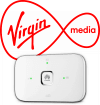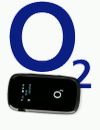Mobile Broadband Buyers Guide
We know from feedback from consumers how daunting it can be when looking for a mobile broadband deal. The marketplace is filled with seemingly endless variations of usage, headline speeds and bundled hardware, so it can be hard to decide which is the right choice for you.
What is mobile broadband?
Mobile broadband uses the mobile phone network to connect you to the internet, much like how the data allowance works on a smartphone but as a special contract without any calls or texts included. You would most commonly use it with laptops and tablets in places where there’s no Wi-Fi access.
You connect to mobile broadband in one of several ways. These can include a personal Wi-Fi hotspot device, a dongle that plugs into the USB port of a laptop, or by inserting a SIM card directly into your SIM-enabled laptop or tablet.
How fast is it?
There are several technologies used in mobile networks that dictate the kind of speeds you will achieve.
4G (also sometimes referred to as LTE) is the latest generation, and the fastest. It has a theoretical top speed of 150Mb, but an Ofcom report from 2015 showed that the average speed achieved is 14.7Mb. Some providers also offer double-speed 4G and 4G+ in some areas.
HSPA+ (identified by an H+ symbol next to the signal bars on a device) and the older HSDPA (an H symbol) are often called 3.5G. These will give you typical speeds up to around 6Mb. They currently have greater coverage than 4G, so you may use them in some areas.
3G has a theoretical maximum speed of 7.2Mb, and produces a real world average of around 3Mb.
There are also even slower 2G technologies like EDGE and GPRS which are little faster than a dial-up internet connection. You’re only likely to encounter them in rural or remote areas, or on a train when it passes through an area with limited coverage. These technologies aren’t really classed as mobile broadband, but are used as a fallback on some networks (not including Three, which has switched off non-3G data entirely).
Who is mobile broadband good for?
Mobile broadband is useful for anyone who needs internet access when they are on the move.
- Regular travellers — if you’re often out and about with your laptop or tablet, in places where there’s no Wi-Fi access, you can connect via a dongle or personal hotspot wherever there’s coverage. This includes most urban areas, though you might still encounter pockets where you get a phone signal but no data connection
- Business users — you won’t need to stop working when you’re out of the office. You can even stay connected while you’re waiting at the airport or sat on the train
- Very light users — if you don’t use the internet very much you might not want to sign up to a long-term standard broadband contract. Pay as a you go mobile broadband gives you access only when you need it
- Homes without a landline — regular broadband requires you to pay for phone line rental. If you don’t need a landline, and have modest internet requirements and avoid streaming video, you may be better suited to mobile broadband
- Short term lets — if you’re planning on moving soon you can avoid the hassle of migrating your broadband service to your new home by using mobile broadband instead
- Students — every student needs internet access, and with mobile broadband you get it at home, in lectures and even the student union bar
- Anyone who needs a backup connection — if your normal broadband service goes down for any reason, a mobile broadband package will ensure you aren’t cut off from the online world entirely
What are the benefits?
There are numerous benefits to using a mobile broadband service.
- It’s convenient and flexible — whether you need internet access for just a couple of days or for a couple of years there are mobile broadband packages for you. You can use it almost anywhere, too. 98% of residential homes have some form of mobile network coverage
- It can be very fast — the speeds you get from a 4G connection can be faster than many standard broadband services, and as fast as some fibre broadband offerings
- It’s cheap for light use — if you only use the internet occasionally, and avoid data intensive tasks like downloads and video streaming, then mobile broadband can work out cheaper than normal broadband
- It means you can use you laptop or tablet on the go — most portable computers need Wi-Fi to access the internet on the move. With mobile broadband and a dongle or personal hotspot you can now connect anywhere there’s coverage
- It’s easy to set up — there’s little or no setup required for mobile broadband, you won’t need an engineer to install anything, and it’s ready to use instantly
- You can spread the cost on an iPad — you can spread the cost of an iPad or other tablet over a couple of years by buying one with a mobile broadband contract
Are there any potential downsides?
As good as mobile broadband is, there are still a few things you need to be aware.
- The speed can vary — the speed you will achieve with mobile broadband is dependent on several factors. These include whether you’re in an area of good 4G coverage, and the number of other people also using the service in the same area
- Usage caps are quite low — the download caps on mobile broadband deals are generally quite low. If you’re willing to pay for the highest possible allowance, you can expect up to around 50GB per month at most, but most packages are often considerably lower
- It’s expensive for heavier users — the consequence of lower usage caps is higher prices for more demanding users. It’s fine for web and email, but less suited to Netflix or heavy Skype use
- You can’t always use it abroad — most networks don’t allow you to use your mobile broadband service overseas. You normally need to buy an add-on for roaming, at a much higher price
- 4G drains the battery — mobile broadband will drain your battery faster than Wi-Fi. You may need to consider this factor if you’re using a SIM-enabled tablet or laptop with a dongle
What is the difference between mobile broadband and my existing data plan for my phone?
The technology used in mobile broadband and your phone’s data allowance is the same.
The differences come in how they are sold. Many networks allow tethering (sharing the data connection with another device) on their phone plans. But if you have a phone plan with a higher, or unlimited data allowance, the network will place a cap on the amount of data you can use for tethering.
Tethering is good for occasional use. For more regular use you will be better served with a proper mobile broadband package.
Can I get mobile broadband, and who are the providers?
Mobile broadband works anywhere there is a mobile signal, and around 98% of the population has some level of coverage.
To see the coverage in your area, and the speed you might expect to get both indoors and outdoors, use the coverage checkers supplied by each of the main network providers.
You can find a simple single postcode check for all mobile networks at www.signalchecker.co.uk.
Ofcom also provides its own independent coverage map allowing you to compare data coverage from different providers.
Still not certain whether coverage will be good? All suppliers allow their contracts to be ended within the first seven days (some conditions may apply, see provider sites for details) and some, such as O2 and Vodafone, offer a no quibbles returns policy for the first 30 days of your contract. You can also test the mobile data coverage using a smartphone from the same provider.
I’m not in a 4G area. Does that matter?
Most mobile broadband providers don’t differentiate between 4G and other speed networks. You will automatically use the fastest network in the area you’re in (so long as your hardware is compatible).
So, you’ll get 4G speeds in a 4G area, but if you move to an area where there’s no 4G coverage you will drop down to HSPA+, HSDPA or 3G speeds in turn. The switch happens automatically, and you won’t lose your connection.
Vodafone still offers a 3G mobile broadband service, at a lower price than its 4G service.
How much does it cost?
How much you pay for mobile broadband depends whether you use pay as you go or sign up for a contract.
There are four main types of package, with prices ranging from £5 to £50 per month.
- Contract mobile broadband — A contract normally of 12 to 24 months that includes a set amount of data usage (typically between 1GB and 20GB) and includes a free personal hotspot or dongle. The price varies based on the length and amount of data you require, and you’ll have to pay more for any excess data usage.
- Pay as you go mobile broadband — PAYG has no contract and no commitment. You buy a personal hotspot or dongle, and then buy top-ups as and when you need them. A top-up gives you a data allowance of one gigabyte or more that you must use within a set time frame. If you use all your data you need to buy another top-up. You may also be able to buy a 'Starter Kit' that gives you an initial top-up with a larger amount of data that then takes longer to expire than usual.
- Bundled tablets and laptops — If you’re planning to buy a laptop or tablet and want mobile broadband too, then you can buy them together. You’ll pay less up front for the hardware, because its price is subsidised by the contract. Contracts are typically 24 months for the best deals.
Is it better to choose a contract or pay as you go?
The choice between contract and pay as you go is a choice between lower price with long term commitment, and higher price with no commitment.
The price per gigabyte of data will be lower on a 12 or 24 month contract than on pay as you go.
There are also contract options for higher data allowances — you might need to top-up several times to get the same allowance on PAYG.
If you need a larger usage allowance, or intend to use mobile broadband regularly, then a contract is likely to be your best option. For light or occasional use, PAYG could be better. Remember, though, that those PAYG top-ups do expire.
Both contract and pay as you go come with the option of bundled hardware. Contracts include options for tablets, personal hotspot devices and dongles, while PAYG deals come with a hotspot or dongle.
There are also SIM-only deals, which offer some of the price benefits of a contract without the bundled hardware. They are typically based around 12-month contracts, or shorter 30-day rolling contracts which can be cancelled with 30-days’ notice. With a SIM-only deal you are provided with a SIM to use in an existing portable Wi-Fi device, as well as tablets and other SIM-enabled hardware. You do need to ensure the hardware supports the latest mobile broadband protocols, such as 4G, to get maximum performance from it.
What devices can I use mobile broadband on?
There are several different types of device you can use to access mobile broadband.
- Personal hotspot — A personal hotspot is a small Wi-Fi router containing a SIM card that connects to the mobile network. They are portable, and you can connect multiple devices to them. Popular examples include Mi-Fi, from Three, and the Buzzard from EE, an in-car router powered by the vehicle’s 12v socket.
- USB dongle — A dongle also has an embedded SIM card and connects to the USB port of a laptop or other computer. As a direct connection, rather than Wi-Fi, it can only be used with one device at a time.
- SIM-enabled tablet — If you already own a tablet (or laptop) with a SIM slot, you can buy a SIM-only mobile broadband contract. These are often a little cheaper, since there’s no hardware to subsidise, and the contracts can be shorter, starting from 30 days. Note, that your tablet’s hardware needs to support 4G if you’re hoping to use it on a 4G network.
Can I use mobile broadband overseas?
You can’t use your mobile broadband service overseas on most networks; the honourable exception being Three.
Three’s Feel At Home service enables you to use your standard mobile broadband allowance in 19 countries — including France, Spain, Australia and the USA — at no extra cost.
On other networks or in non-Feel At Home countries you need to purchase a roaming add-on. This is either a per-day charge, such as on O2 (subject to fair use terms), or a data allowance that lasts for a set period. Either way, the prices are far higher than using it in the UK and the actual data allowance tends to be extremely low.
The good news is that new EU data roaming regulations coming into effect will see data roaming charges in EU countries abolished entirely. From the end of April 2016 networks will only be allowed to add a €0.05 per megabyte surcharge, and from 15 June 2017 they will have to charge the same for data in the EU as they do at home.
Other Types Of Deals
You've reached the end of our mobile broadband buyers guide. Why don't you look for some of the best deals available?



